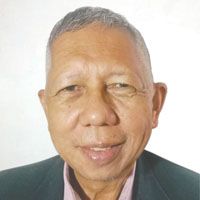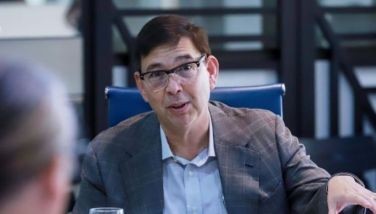Argentina’s economic recovery via free market policies and lessons for Philippines

BUENOS AIRES – It’s my first time to set foot in South America and I am here in a country withthe first openly free marketer president in the continent, Argentina President Javier Milei.
I am here to attend meetings and forums with fellow leaders of free market think tanks, institutes and taxpayers associations.
The local host is the Asociacion Argentina de Contribuyentes, among the groups that supported Milei in the elections.
Argentina had a bad, anti-poor economic performance prior to Milei.
For instance, the average inflation rate from 2010 to 2019 and 2020 to 2023 were as follows: Argentina 22.1 percent and 74.1 percent; Brazil 5.8 percent and 6.3 percent; Philippines 3.0 percent and 4.5 percent and Indonesia 4.7 percent and 2.9 percent.
In GDP growth over the same period, Argentina had growth of only 1.4 percent and 1.1 percent, Brazil 1.4 percent and 1.9 percent.
The Philippines had 6.4 percent and 2.3 percent while Indonesia had 5.4 percent and three percent.
So public dissatisfaction with the previous administrations including the administration candidate versus Milei was high, and Milei won the second round elections in November 2023.
After 12 months, he has produced significant improvement in the country’s economic fundamentals.
Among these are the following:
One, a budget surplus in 2024, for the first time since 123 years ago.
For the January-November period, Argentina’s Treasury primary balance are as follows: -2.7 percent in 2017; -1.4 percent in 2018, 0.1 percent in 2019, -5.6 percent in 2020, -1.9 percent in 2021, -1.5 percent in 2022, -1.9 percent in 2023 and 2.2 percent in 2024, a significant primary surplus.
Two, the average month on month inflation rate in the last eight months of former Economy Minister Massa (with price controls), April-November 2023 was 12.7 percent. In April-November 2024 under Milei (no price control), only 3.1 percent.
Three, the seasonal or quarter on quarter GDP recorded a 3.9 percent growth in the third quarter of the year after contractions in the first two quarters.
Argentina has escaped recession.
Four, Milei cut the number of ministries from 19 to nine, or he abolished 10 ministries with 10 percent of public employees equivalent to 30,000 government jobs.
This, plus the reduction or abolition of some household subsidies like electricity and water bills explained for a significant fiscal surplus within a very short period of time.
Five, Milei’s Ministry of Deregulation implemented 672 deregulation reforms, like abolition of certain laws and liberalization of previously monopoly or oligopoly sectors.
I was curious how an “outsider,” a non-career politician and his supporters were able to defeat an established politician and political party. It turns out that Milei’s party and coalition, La Libertad Avanza, is composed of volunteers from the private sector. In one province, Chaco, about 99 percent of the supporters were from the private sector or non-political party members.
Jose Luis Espert, another free marketer businessman and politician and former presidential candidate in the 2019 elections and now the national deputy for La Libertad Avanza and the president of the budget committee of the Argentine Congress, said politicians should have a background in business and competition.
Then they can incorporate discipline in their government work.
The Philippines political and business establishments can learn from the hard lessons of Argentina and the tight economic and fiscal reforms needed to reverse the decline.
From 2020 to 2023, we have an average budget deficit of P1.54 trillion a year or -7.4 percent of GDP which is huge.
Over the same period, our new public borrowings were P2.2 trillion a year and interest payment alone from those old and new debts was P485 billion a year or 2.3 percent of GDP – again huge.
We have plenty of no-timetable, forever subsidies and freebies that were supposed to be temporary but became permanent. This leads to permanent dependence on the state of a lot of people, lulled by many “entitlements and rights.”
Since our local government units (LGUs) – municipalities, cities and provinces – have fiscal surplus yearly while the national government has fiscal deficit yearly, many national agencies should shrink in budget and size of bureaucracy and let the LGUs continue those high subsidies if they want these for their own residents and voters.
More free market policies and business competition, more personal and parental responsibility in running people’s households, more self-reliance, more freedom and liberty, less regulations-prohibitions-restrictions, less taxes and bureaucracies.
Humanity needs these. We need these.
The state should go back to its original functions, the “raison d’etre” (reason for existence) of government – protect the people’s right to life, right to private property, and right to liberty.
“Right” to free education until university, “right” to free healthcare even for non-infectious diseases, other entitlements are not part of the original functions of a government.
Fiscal reforms in non-core functions of government must be implemented.
- Latest
- Trending






























